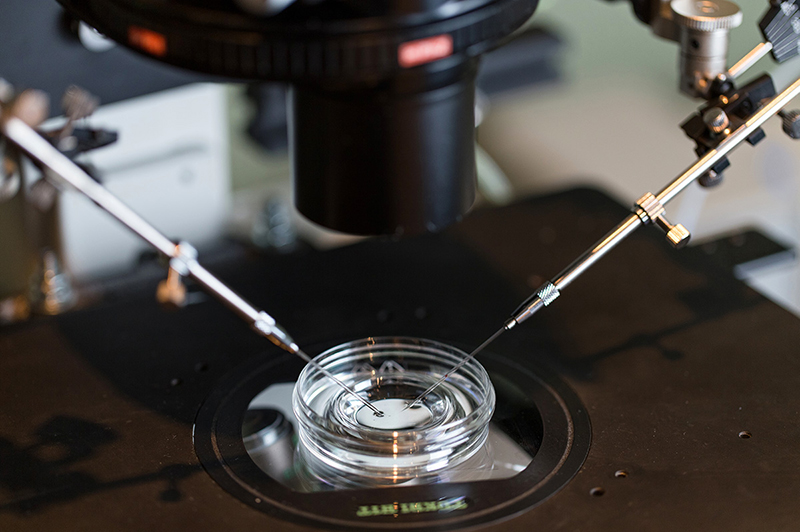
Children with birth defects have a higher risk of cancer than children without birth defects. Now, researchers funded by the National Institutes of Health have found that children conceived through in vitro fertilization—who have a higher risk of birth defects than children conceived naturally—also have a commensurately higher risk of cancer than naturally conceived children with birth defects. The study was conducted by Barbara Luke, Sc.D,, of Michigan State University, and colleagues. It appears in JAMA Network Open.
Background
Children conceived through in vitro fertilization (IVF) accounted for 2% of U.S. births in 2017. Among children conceived naturally, those who have birth defects have a higher risk of cancer. Previous studies have found that children born after IVF have a higher risk of birth defects and cancer than children conceived naturally, but it was not known whether having a birth defect increases cancer risk.
The study authors analyzed data from birth certificates, birth defects registries, cancer registries, and IVF and assisted reproductive technology databases from New York, Texas, Massachusetts, and North Carolina. More than 1 million children were included in the naturally conceived group, and almost 53,000 in the IVF group.
Results
For children conceived naturally, those who had birth defects not due to a chromosomal abnormality were slightly more than twice as likely to have developed cancer, compared to children born without birth defects. Those with a birth defect involving a chromosomal abnormality were more than 15 times as likely to have developed cancer.
For those conceived with IVF, children with a birth defect not attributed to a chromosomal abnormality were more than four times as likely to have developed cancer. Those with a birth defect involving a chromosomal abnormality had close to 39 times the risk of cancer, compared to children conceived with IVF with no birth defects.
Significance
The authors concluded that their findings provide evidence of an association between birth defects in children born after IVF and the development of cancer. A potential explanation for the findings is that infertile parents may have a higher frequency of mutations that are then passed on to their children, increasing the risk of birth defects and cancer. Other theories hold that the IVF process could account for the higher risks, through either epigenetic changes—modifications to DNA that do not change its chemical structure—or through an increased frequency of mutations in the embryo.
Reference
Luke, B, et al. Assessment of birth defects and cancer risk in children conceived via in vitro fertilization in the US. JAMA Network Open. 2020.

 BACK TO TOP
BACK TO TOP